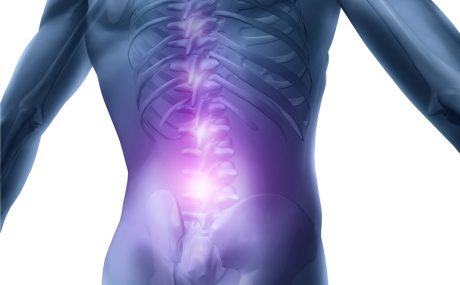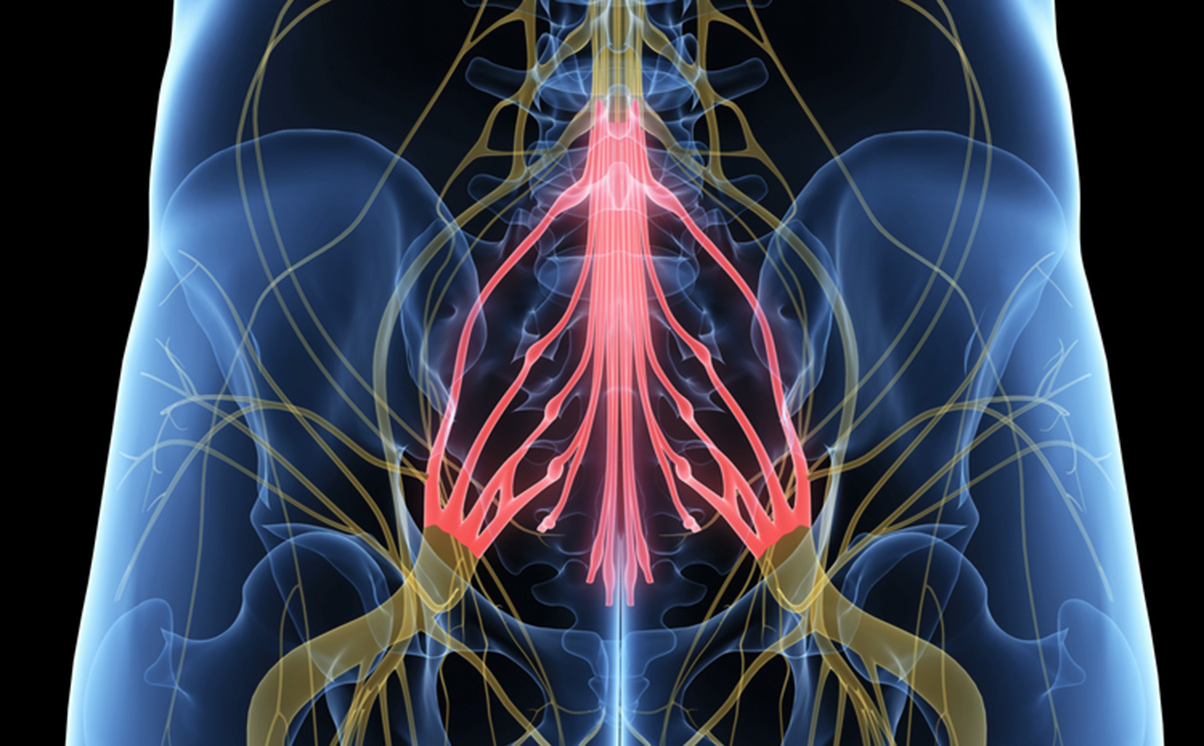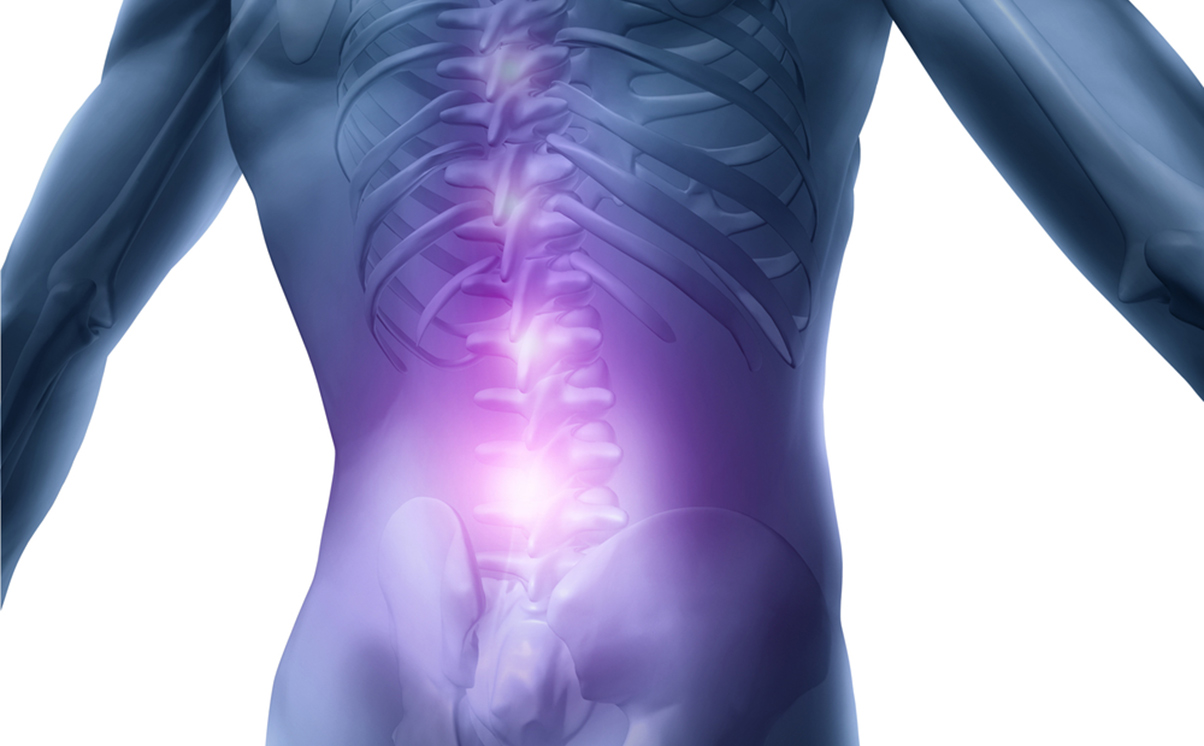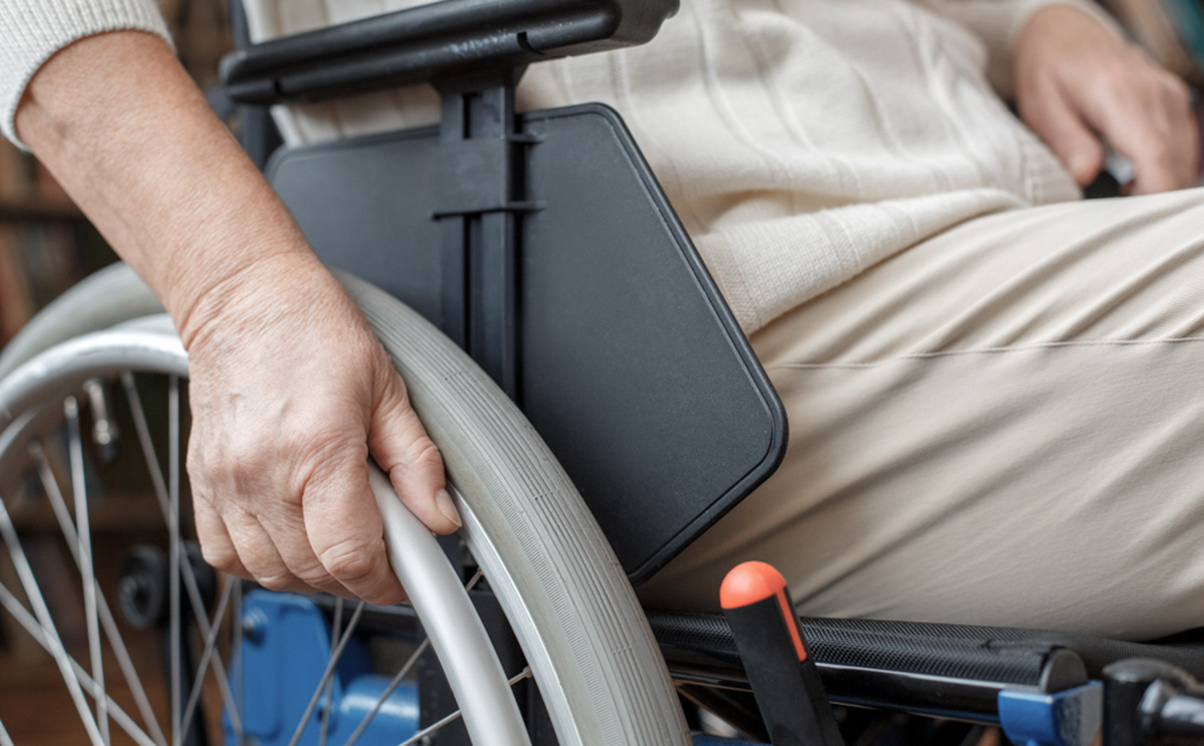Case study of KT, who was 59 years old at the time of her injury in September 2014, with delayed diagnosis of Cauda Equina Syndrome who can now look for a bungalow to help her mobility needs.
Admission to hospital
On 27 September 2014 KT developed severe pain in her lower back and right leg. Her husband took her to her local NHS hospital. Whilst at hospital she tried to urinate, but was unable to. KT thought this was due to the pain and so she did not think anything of it at the time and did not mention it. An x-ray of her lumbar spine was reported as normal and she was discharged home with painkillers.
In the early hours of 28 September 2014, KT’s back pain became more severe and she experienced numbness down both legs. She was unable to get out of bed and she had still not passed urine.
KT’s husband called an ambulance, which took over four hours to arrive. KT was eventually taken back to her local hospital that morning. It was noted that KT had still not passed urine since the previous day and that she had a number of red flag symptoms indicating serious spinal pathology including bilateral sciatica and reduced anal tone. A telephone call was made to the neurosurgery department at a specialist London NHS hospital and the advice was to do an MRI scan the following morning.
On 29 September 2014, an MRI scan reported an L4-5 disc prolapse. Despite this finding and KT’s worsening condition, no further action was taken for several days. During this period, KT lost all power in her right foot and lost control of her bowels.
On the evening of 2 October 2014, KT was transferred to the neurosurgery department at the specialist London hospital. KT underwent surgery an L4-5 discectomy to remove the bulging disc.
KT was left with incomplete paraplegia. Her most significant injury was her severe right foot drop which caused her difficulty walking and going up and down stairs. KT required crutches to walk and a wheelchair for long distances. KT suffered from neuropathic pain as well as bladder, bowel and sexual dysfunction. She was unable to return to her work and she experienced depression. Her husband became her main carer.
Legal case
KT’s case was taken on by Stewarts in June 2015, with Stewart Young, a senior associate, having conduct of the case. A claim was investigated against the two hospitals and the ambulance service.
Independent expert evidence was obtained from doctors specialising in emergency medicine, neurosurgery and a paramedic. All of the experts were critical of the delays in treating cauda equina syndrome, which is a medical emergency requiring immediate surgery.
Letters of Claim were sent to the two NHS Hospitals which led to an admission that there was a substandard delay in carrying out surgery. However, it was argued by the defendant that even with earlier surgery, KT would not have avoided her injuries and the only improvement would have been that her right foot drop would have been less severe.
Court proceedings were commenced. Both parties began exploring the value of the claim. A spinal rehabilitation report and a care/occupational therapy report was obtained on behalf of KT. It was clear that the case was of significant value, but one of the difficulties was working out what condition KT would have been in had she received prompt surgery. According to our experts, KT would still have had some neurological deficits such as bladder and bowel dysfunction, and it was doubtful whether she would have been able to return to work in any event.
Settlement
Following an examination from the defendant’s neurosurgery expert, the defendant amended their defence to acknowledge that the vast majority of KT’s injuries would have been avoided but for the negligence. In January 2019, shortly before a court hearing to set down the litigation timetable, the defendant made an offer of £1.3m to settle the claim which was accepted by KT.
Testimonial from KT’s daughter:
“Stewarts were so professional throughout. I was completely confident in their ability in dealing with the claim. Stewart Young was very approachable, and I felt like I could ask him anything. He always responded promptly and in a way that I could understand.
My Mum is managing and her confidence is improving every day. At first she was very reliant on my Dad for care and support, which was difficult as prior to the accident she had been so independent. My Mum has always loved cooking, and initially wasn’t able to cook, but has now returned to her hobby. She also has a mobility scooter and this has given her a new lease of life. She is able to get out of the house and go shopping on her own. She’s getting more and more confident with using it each day. Hopefully in the future, she’ll be able to get an adapted car for her use, but she’s not quite there yet.
The settlement has helped a great deal. Not only has it enabled my parents to start looking for a bungalow to improve Mum’s mobility, but it means they will be able to adapt the bungalow as necessary.
The settlement has meant the worry has been taken away, and given them more financial freedom. My Dad is always looking at alternative therapies that might be able to help my Mum’s rehabilitation and recovery, and these are often only available privately.”
Life Beyond Injury
The damages will enable KT to start to look for a bungalow so that she no longer has to struggle up and down the stairs in her house which our experts flagged up as dangerous given KT’s high risk of falling. It has also enabled her to make sure that her care needs are met for the rest of her life and to purchase aids and equipment to increase her independence.
Life beyond injury
We have teamed up with other clients who have suffered catastrophic injuries to tell their stories of Life Beyond Injury. Please visit the Life Beyond Injury webpages here.
We hope that by sharing these stories, newly injured people can see that with the right support they too can overcome adversity to lead full and active lives.
You can join in the conversation and share your stories of overcoming adversity to lead a fulfilling life beyond injury: on Twitter, here #lifebeyondinjury; or on Facebook, here #lifebeyondinjury.
You can find further information regarding our expertise, experience and team on our Clinical Negligence pages.
If you require assistance from our team, please contact us or alternatively request a call back from one of our lawyers by submitting this form.
Subscribe – In order to receive our news straight to your inbox, subscribe here. Our newsletters are sent no more than once a month.





